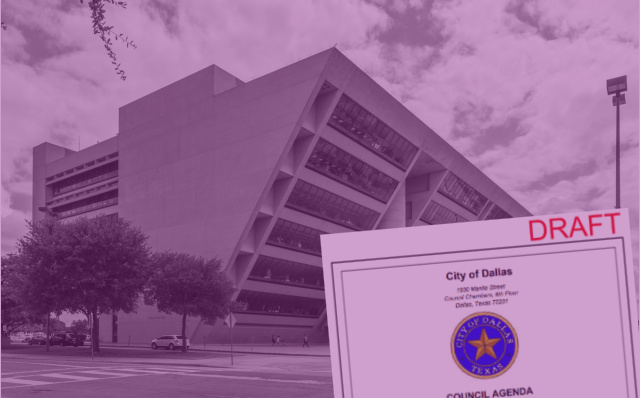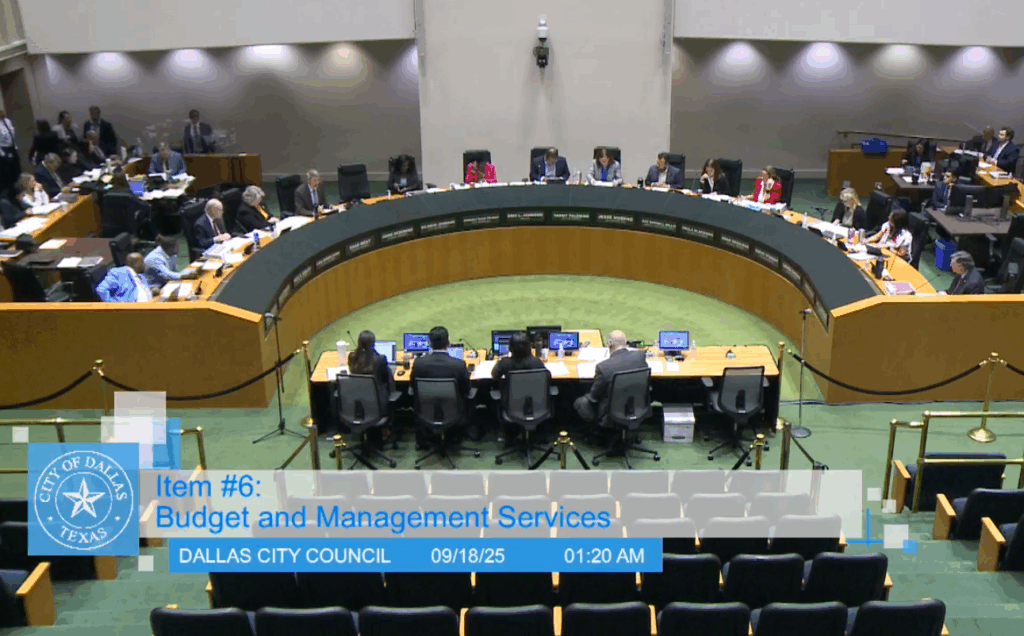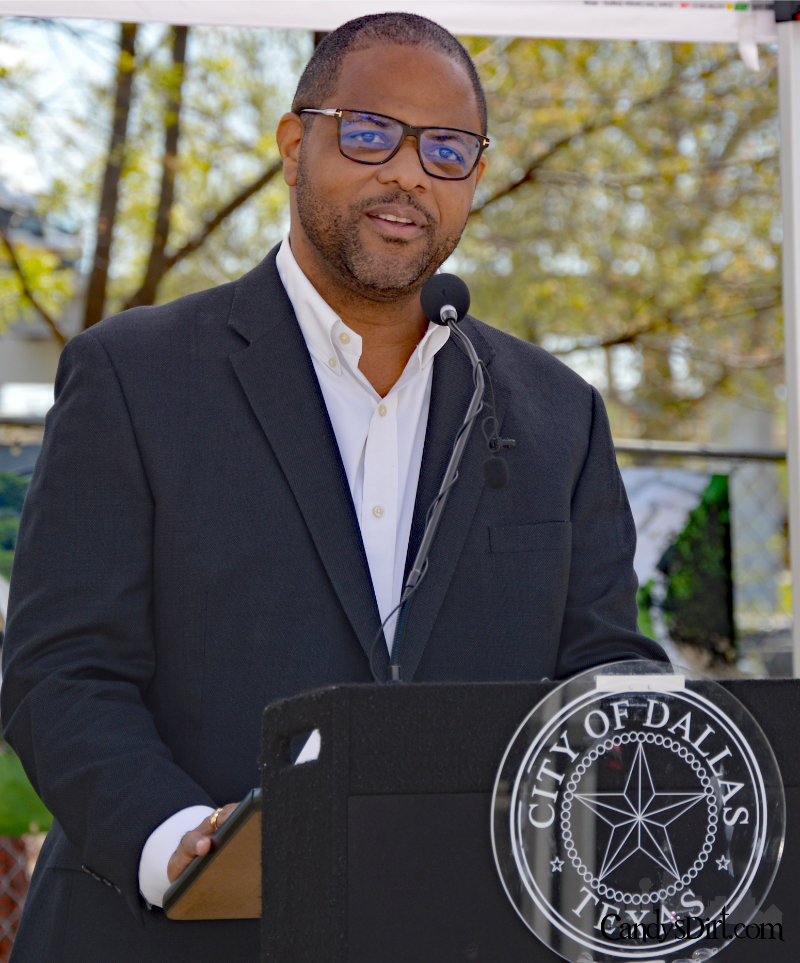
Budget season came to a close early Thursday morning with the Dallas City Council adopting its biggest budget yet while still managing to deliver some property tax relief.
A majority of council members supported a $5.2 billion spending plan. The vote passed 11-3, with Mayor Eric Johnson and Council Members Jesse Moreno (District 2) and Cara Mendelsohn (District 14) registering opposition.
The new property tax rate of 69.88¢ per $100 valuation (down from 70.47¢ last year) got a little more support, with only Johnson and Mendelsohn voting against it. The reduction marks the 10th straight year of property tax relief delivered by the city council.

No-votes on the tax and spending proposals stemmed from dissenting council members’ desire to cut more and pass the savings on to property owners in the form of a bigger rate reduction.
While Johnson praised City Manager Kimberly Tolbert’s initial budget proposal’s emphasis on public safety and street repairs, he criticized his fellow council members for rejecting most of the amendments that were proposed Wednesday and Thursday (it was a long council meeting) to further trim spending by City Hall.
 Eric Johnson
Eric Johnson
“As I said early in our budget discussions, if we are unable to cut even the low-hanging fruit that these amendments targeted, then we are unlikely to accomplish the much more difficult work that will be required to right size our City budget,” Johnson said in a statement. “The result is a bloated budget that fails to provide much-needed tax relief for Dallas residents.”
Johnson had previously challenged his colleagues to propose more cuts so they could reduce the property tax rate more, but only a handful of amendments were adopted.
Council members opted against decreased spending on the Dallas Arboretum, the Dallas Zoo, and initiatives for the homeless. However, they did cut state lobbying contracts, city memberships, and funding for Skillman Library. They also reduced department food, furniture, and marketing budgets.
“We are proud to present a sound budget that upholds our commitment to invest in programs that matter most to our residents, while exemplifying excellence through innovation, efficient government, and targeted economic growth,” said Tolbert in a press release.
Things weren’t looking great heading into the summer when officials projected a significant budget shortfall based on lackluster sales and property tax collection forecasts. Tolbert went back to the drawing board and penciled in enough cuts to balance the budget, sacrificing various non-essentials to support boosts to public safety and street maintenance spending.